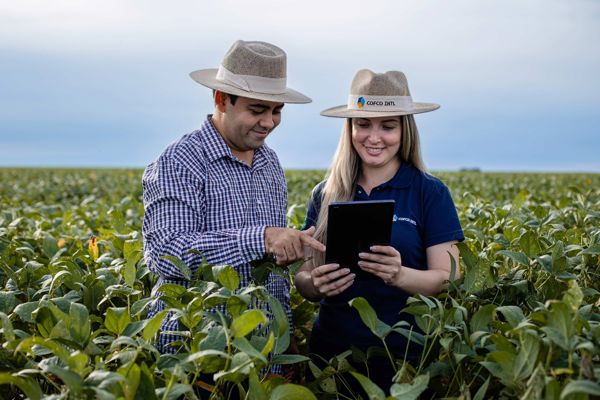
FT Commodities Global Summit: Sustainability considerations to drive agricultural supply growth
Technology and sustainability considerations will largely shape the way countries approach their agriculture, a senior official from COFCO International said, outlining the company’s environmental work in Brazil.
Marcelo Martins, Vice President and Head of Grains & Oilseeds at COFCO International, spoke at the FT Commodities Global Summit panel discussion titled “The start of an agri-commodity super-cycle”.
Panelists discussed the outlook for supply and demand, the biggest drivers of change as well as where the biggest opportunities will lie after a strong run of agricultural commodities in the past months.
“I think the big transformation is coming from technology,” Marcelo said. “I think technology will have a much larger impact on supply growth than traditional acreage.”
“At the same time we have sustainability, which is here to stay and is here to change the way that we see production growing,” he added.

Marcelo Martins, Vice President and Head of Grains & Oilseeds at COFCO International
Sustainability in Brazil
While soy production is expected to continue to grow significantly, Martins said that Brazil could increase its production on pastures already cleared for cattle farming.
The Cerrado has over 25 million hectares of such land. And with the right incentives, including compensation for no deforestation, further conversion of virgin forests and native vegetation can be avoided.
“And I think this is where the country will pay more attention because this will support the sustainability discussion,” Marcelo said.
“We selected Brazil as our top priority for sustainability.” “Our presence is pretty large and our program is pretty large, so we want to make sure that we have the most significant achievements over there.”
COFCO’s sustainability work includes a USD 2.3 billion loan, in which repayments are linked to the achievement of soy traceability, collaboration with the World Bank’s International Finance Corporation (IFC) in the Matopiba region, and participation in the Soft Commodities Forum (SCF).
SCF members aim to reduce and eventually eliminate native vegetation conversion in their Cerrado soy supply chains, a goal that COFCO International supports.
“The forum has very ambitious targets,” Marcelo said.
Marcelo said that COFCO International had reached the SCF targets ahead of time by achieving 100 percent traceability in all their 25 priority municipalities in 2020.
“Especially in the Cerrado, we have managed to reach already 100 percent traceability,” he said.
Finally, COFCO International’s new Conversion-Free Soy Standard will enable it to source soy in line with the specific conversion cut-off dates required by customers, whose interest has been growing in sustainably sourced soy.
